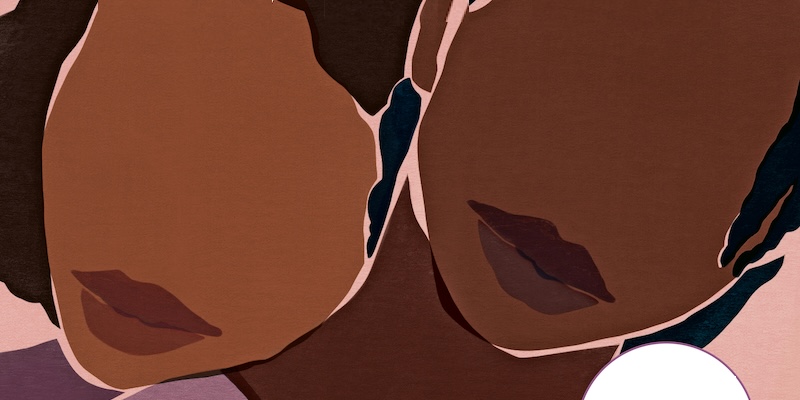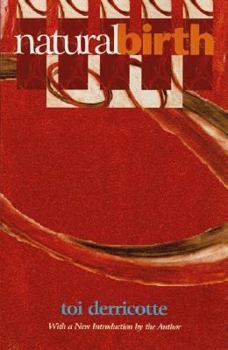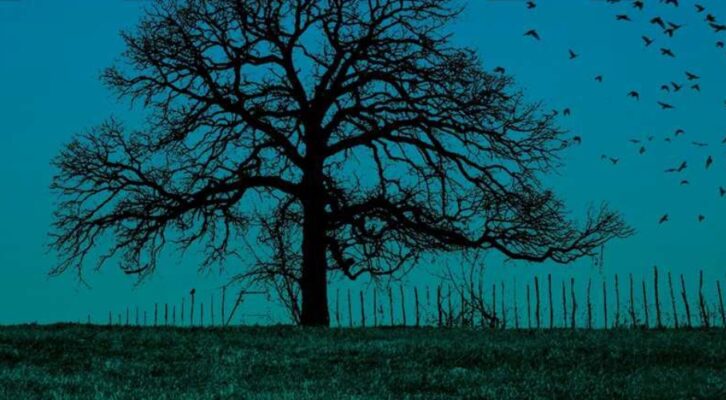
Friend, Foe, Family, Stranger: Fourteen Books on Black Motherhood by Black Daughters
Tramaine Suubi Recommends Toi Derricotte, Toni Morrison, Deesha Philyaw, and More
In 1859, Harriet Wilson published Our Nig. This forgotten novel was the first book published by a Black woman in the United States. Wilson’s main character, Frado, is parentified too young and then becomes a mother too soon. This traumatic experience is widely caricatured in global literature, but then again misogynoir is older than the so-called democracies of the West.
Across the diaspora, Black women are desexualized and hypersexualized at every age. And as with most anti-Black racism in the United States, it stems from chattel slavery. During this same enslavement, Black midwives pioneered the field of obstetrics and gynecology, yet Black mothers still have the highest mortality rate in the nation, if not the world. With all this and more intersectional and systematic prejudice, the very existence of Black motherhood is a miracle.
Thankfully, more and more Black authors are challenging this dehumanization. They remind us that every Black mother is unique and that each of them has a story worth telling. For some daughters, their mother is their first friend. For some daughters, their mother is their first foe. For others still, their mother is both.
The latter is a pattern in our stories. It is worth noting that most of the authors in this article have experienced or do experience estrangement from their mothers or estrangement from their daughters. What is motherhood if not an act of dismembering; as in putting the whole into separate parts? And what is daughterhood if not an act of remembering; as in putting separate parts of the whole together again?
The tragedy and comedy of it all is that these members, be they mental or physical or spiritual, cannot be truly separate or truly whole again. As I continue to move through the complexities of Black daughterhood, I am grounded in my lifelong love of books. Beginning with the ancestors, these are books that resonate with me on this Mother’s Day.
*

Nella Larsen, Passing
“I think that being a mother is the cruelest thing in the world.” To describe the two biracial mothers in this 1929 novella as “complicated” is an oversimplification. In theory, both women could be black-presenting and white-presenting, but one makes the fateful choice to be white-passing as an adult. Their tense encounters, complete with homoerotic undertones, are explored against the backdrop of 1920s Harlem.
The 2021 film adaptation was poignantly shot in black-and-white and directed by Rebecca Hall. This controversial second book unjustly ended her career but made Nella Larsen the first Black woman to win a Guggenheim Fellowship.

Maya Angelou, Mom & Me & Mom
“My mother’s gifts of courage to me were both large and small. The latter are woven so subtly into the fabric of my psyche that I can hardly distinguish where she stops and I begin.” In this 2013 New York Times bestseller memoir, Maya Angelou graciously offers an intimate portrait of her absent mother.
Much can be made of the mother who sends her children away to protect them from herself. They later reconnect, and this last book of hers is ultimately one of redemption. Maya Angelou was awarded the National Medal of Arts and the Presidential Medal of Freedom before she died in 2014.

Toni Morrison, Beloved
“I don’t care what she is. Grown don’t mean a thing to a mother. A child is a child. They get bigger, older, but grown? What’s that supposed to mean? In my heart it don’t mean a thing.” This 1987 ghost story focuses on a formerly enslaved mother who is haunted by her dead daughter and her living daughter. The horrors of motherhood and daughterhood are dissected throughout the book.
This masterpiece was adapted into a 1998 film cast and a 2016 radio series. This novel eventually made Toni Morrison the first Black woman to win the Nobel Prize in Literature.

Toi Derricotte, Natural Birth
“all the girls were cheering when i went downstairs. i was / the one who told them to be tough, to stop believing / in their mother’s pain, that poison… / it wouldn’t hurt / like we’d been told. birth was beautiful if we believed / that it was beautiful and right and good!” This vulnerable poetry collection was published in 1983, and it chronicles the author’s experience with unplanned pregnancy and whirlwind marriage.
Toi Derricotte later co-founded Cave Canem in 1996 and won the 2020 Frost Medal from the Poetry Society of America.

Alice Walker, The Color Purple
“But one day when I was sitting quiet and feeling like a motherless child, which I was, it come to me: that feeling of being part of everything, not separate at all.” This 1982 novel examines a spectrum of relationships between women, including the spectrum of forced motherhood.
This epistolary epic was adapted into a 1985 film, a 2005 stage musical, a 2008 radio series, and a 2023 film musical. This novel made Alice Walker the first Black woman to win the National Book Award in Fiction, and to win the Pulitzer Prize in Fiction.

Octavia Butler, Parable of the Sower
“All that you touch You Change. All that you Change Changes you.” This New York Times bestseller is arguably the most prophetic science fiction novel for our times. The heart of this novel and the sequel is a hyperempathetic prodigy turned revolutionary, but the sequel is unempathetically narrated by her daughter. Both books also explore adoptive motherhood and other forms of chosen family.
The Parables duology has been adapted into a 2015 opera and a 2020 graphic novel. The sequel won the Nebula Award, and Octavia Butler eventually became the first science-fiction writer to win a MacArthur Fellowship.

Jennifer Nansubuga Makumbi, A Girl is a Body of Water
“When children arrive, the window closes. Wife, mother, age, and role model—the ‘respect’ that comes with these roles is the water they pour on your fire.” This multigenerational epic offers a sweeping view of the blessings and curses that daughters can inherit from their mothers.
Aside from cementing the author as the greatest writer in Buganda’s history, this 2020 novel is unique in its expansive definitions of family, and its tender affirmation of being raised by multiple mothers. It also happens to be my favorite book title of all time. Dr. Jennifer Nansubuga Makumbi won the Jhalak Prize for this classic.

Deesha Philyaw, The Secret Lives of Church Ladies
“There’s an old saying: mothers raise their daughters and love their sons.” This 2020 short story collection excavates the vast interiority of churched mothers and their questioning daughters, across nine wildly subversive stories. The range of characters easily blur the man-made lines between saints and sinners.
This luminous collection is being adapted into a forthcoming television series. This debut led to Deesha Philyaw winning the Los Angeles Times Book Prize and The Story Prize.

Aaliyah Bilal, Temple Folk
“She looked out at the streets that she once considered to be the only place she’d ever have a life, though in that moment the entire city looked to her like a cage, placing limits on what she could know of the world.” This 2023 short story collection unravels the experiences of women in The Nation of Islam, across nine, rich stories.
The author was raised in the Nation of Islam, and while she has since left, she creates compelling character portraits, whole worlds within a world. This debut led to Aaliyah Bilal winning the Whiting Award.

Olufunke Grace Bankole, The Edge of Water
“[T]he years had dulled the brightness of…longing.” This 2025 debut travels across generations, religions, nationalities, and ethnicities to explore the dynamic limits of mother-daughter relationships and our own free will. The Yoruba heroine pursues a fresh start in New Orleans right before the worst climate catastrophe in the city’s history.
The book features characters across the spectrum of motherhood and daughterhood. Publishers Weekly gave this novel a starred review calling it, “A beautiful narrative about two Nigerian women who seek independence from their patriarchal culture.”

Keeonna Harris, Mainline Mama
“I spent so much time believing that my love was enough to make up for everything else.” And so goes yet another fallacy of motherhood, in this 2025 debut written by a young mother. She reveals her difficulties in navigating the prison industrial complex, while her husband awaits parole and, hopefully, release.
This coming-of-age memoir is set in Los Angeles and offers a deeply personal account of the New Jim Crow’s millions of so-called “mainline mamas” who persevere today. Publishers Weekly gave this memoir a starred review emphasizing that, “This affecting dispatch from inside the carceral state is not to be missed.”

Camille U. Adams, How to Be Unmothered: A Trinidadian Memoir
“To get something, you have to give up something. To balance the scales, you have to remove some weight. To stay afloat and sail safely to another shore, detritus must be jettisoned. To fly, to be unmoored means sacrificing that which you’ve outgrown, that which should be left behind. Peel the skin, strip the binds….”
The only forthcoming book on this list, this highly anticipated memoir centers on a lineage of mothers who leave their daughters. The author recounts her childhood in Trinidad and how her own unmothering leads her to New York City. Dr. Camille U. Adams was an inaugural Tin House Reading Fellow.

Warsan Shire, Teaching My Mother How to Give Birth
“To my daughter I will say, / ‘when the men come, set yourself on fire.'” This 2011 debut is a compact chapbook which exorcises a series of generational traumas. The author was born during a Somalian genocide and chronicles the refugee experience in all her poetry. She gives special attention to her line of matriarchs and the incalculable effects of war on motherhood.
Warsan Shire was the inaugural Youth Poet Laureate of London and the inaugural winner of the African Poetry Prize.

Raquel Willis, The Risk It Takes To Bloom
“[Grandma] joyfully looked up and her eyes switched from Momma to me…and [she] said, ‘You look pretty, like me,’ in wonderment. I let out a relieved sigh, then lay beside her on the bed. The claiming, the validation, was just what I needed after so much self-doubt.” This 2023 memoir was published during a time when Black trans women were starting to get their flowers but are now fighting to keep what few rights they have.
The author generously offers insight into her transition, including her mother wound. Raquel Willis co-founded the Gender Liberation Movement in 2020 and is officially a TIME Woman of the Year.
Tramaine Suubi
Tramaine Suubi is a multilingual writer, editor, and teacher from Kampala, and a graduate of the Iowa Writers’ Workshop. They have also published creative writing in over fifteen literary anthologies, magazines, journals, and reviews. They are the author of phases and stages, which are published by Amistad (an imprint of Harpercollins). Tramaine works towards the total liberation of all oppressed people by any means necessary. They can be found at www.tramainesuubi.com or on Instagram @tramainesuubi.



















